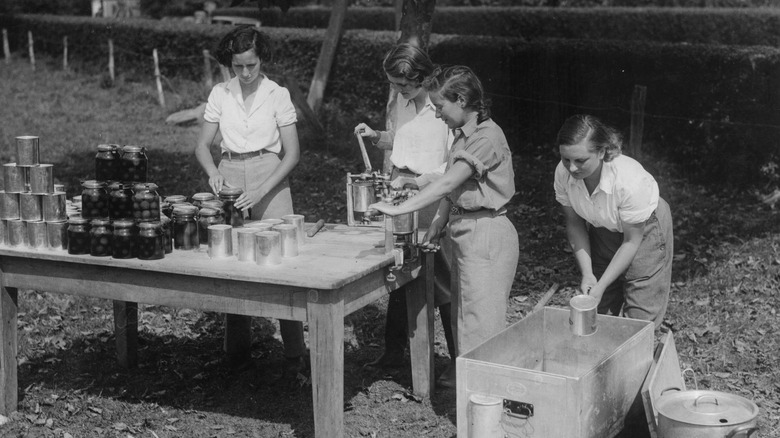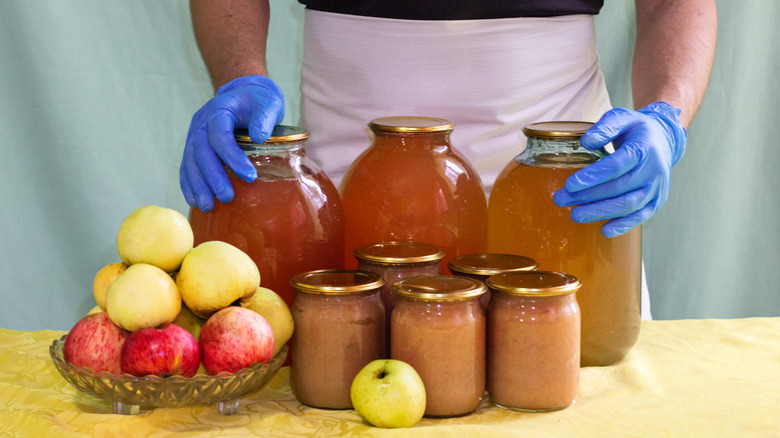Why You Should Stop Using Your Old Family Canning Recipes
There are many things to love about canning your own foods, but there's one significant downside: Improperly canned goods support the growth of botulism, a dangerous foodborne toxin (via BottleStore.com). That's why there are a number of universally accepted safe canning practices, including sterilizing your canning equipment and containers, being sure to leave extra room in the containers, and avoiding this big no-no. It's safe to say that the best practices in canning require sticking to the recipe with scientific precision.
If your canning recipe is old enough, then no matter how many times you've used it safely, going forward, it might be best if you didn't follow it at all, and, instead, seek out a new recipe — preferably one from a published cookbook. If your family canning recipe can't be traced to a published, dated source, then you should consider sending it off into permanent retirement. In fact, the date of the publication is also paramount, but more on that later. Please don't blame us; we're just the messenger. Here is the reason why experts recommend that you stop using your old family canning recipes.
When it comes to canning recipes, age matters
Old family canning recipes may hold deep personal value to you and your loved ones. But, according to Lancaster Farming, your old recipes may not comply with up-to-date safety standards. Indeed, many of these standards have been updated since your grandma put up her first jar of peach preserves. These practices include calibrating for food's precise acidity, methods, and materials used for sealing (per Penn State Extensions), and meticulous temperature tracking, (via Clemson University Extension).
Needless to say, there have been decades of canning recipes written down, archived, or passed by word of mouth through families. Internet Archive has extensive documentatiion with some canning recipes dating back to the mid-19th century. However, Healthy Canning notes that most of these recipes are now defunct as they do not meet the new standards. In fact, if a canning recipe was created before 1994 then it is not really to be trusted, according to Lancaster Farming. In other words, if your family canning recipe is older than the youngest member of Gen Z, then it's too old — at least not without revisiting it, step by step, with an eye toward updating to current safety standards.

